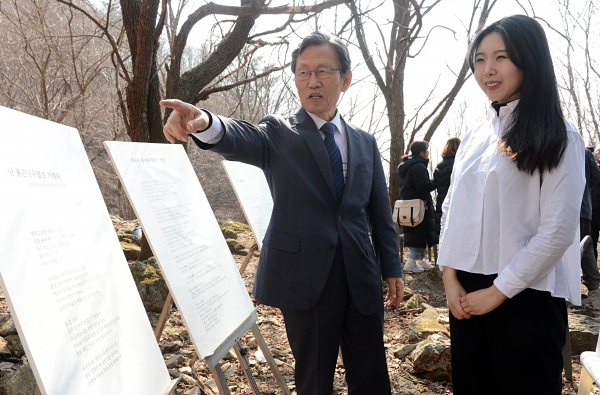Looking back on my adolescence, it was like a tranquil lake. While many describe their teenage years as turbulent, for me it was a time of quiet self-exploration. My introverted nature led me to delve deep into my own world, seeking profound friendships rather than a wide social circle.
I had only a handful of friends, but with those few, I forged unbreakable bonds. We shared our thoughts and dreams, sometimes finding comfort in mere presence without words. I believe this is what enduring friendship truly means. Even now, I still keep in touch with one or two friends from that era.
Of course, not all relationships were that deep. Most of my school friendships naturally faded after graduation, like gentle ripples disappearing on the water's surface. In retrospect, I see this as a natural flow of life.
Conflicts or disputes don't particularly stand out in my memory. Perhaps because I neither created big waves nor got swept up in them. This doesn't mean I was perfect or problem-free; I simply walked my path quietly.
In friendships, quality matters more than quantity. Building deep bonds with a few genuine friends can be more valuable than numerous superficial relationships. It's also crucial to accept your own nature. I didn't blame my introverted personality; instead, it allowed me to explore myself more profoundly.
Life is a long journey, and teenage experiences are just the beginning. What's important is understanding yourself through these experiences and finding direction for your future life. My quiet adolescence became the foundation for my unique perspective on the world later in life.
These teenage experiences deeply influenced my entire life. The habit of quiet contemplation and deep thinking greatly benefited my later life as a pastor. This disposition became an advantage in understanding people's hearts and listening to their concerns.
The deep bonds I formed with a few friends taught me the essence of human relationships. I realized the importance of truly understanding and supporting each other, rather than superficial glamour or numerous connections. This became a crucial guideline in leading my church community later.
The quiet times of my adolescence gave me opportunities for self-reflection. During those times, I could think deeply about myself and the world. This greatly influenced the formation of my faith and philosophy later. In the quiet moments, I could hear God's voice more clearly, which led me to the path of ministry.
Looking back now, my teenage experiences might seem unremarkable. But within that seemingly ordinary daily life, I learned valuable lessons. I learned to accept my nature and develop it into a strength. I also realized the value of genuine relationships and the importance of self-reflection.
These experiences shaped who I am today. The tranquility of my adolescence enriched my inner world, which later became a great asset in understanding and helping others' lives. That's why I'm grateful for my teenage years. The serenity of that time became the precious foundation for who I am now.
I had only a handful of friends, but with those few, I forged unbreakable bonds. We shared our thoughts and dreams, sometimes finding comfort in mere presence without words. I believe this is what enduring friendship truly means. Even now, I still keep in touch with one or two friends from that era.
Of course, not all relationships were that deep. Most of my school friendships naturally faded after graduation, like gentle ripples disappearing on the water's surface. In retrospect, I see this as a natural flow of life.
Conflicts or disputes don't particularly stand out in my memory. Perhaps because I neither created big waves nor got swept up in them. This doesn't mean I was perfect or problem-free; I simply walked my path quietly.
In friendships, quality matters more than quantity. Building deep bonds with a few genuine friends can be more valuable than numerous superficial relationships. It's also crucial to accept your own nature. I didn't blame my introverted personality; instead, it allowed me to explore myself more profoundly.
Life is a long journey, and teenage experiences are just the beginning. What's important is understanding yourself through these experiences and finding direction for your future life. My quiet adolescence became the foundation for my unique perspective on the world later in life.
These teenage experiences deeply influenced my entire life. The habit of quiet contemplation and deep thinking greatly benefited my later life as a pastor. This disposition became an advantage in understanding people's hearts and listening to their concerns.
The deep bonds I formed with a few friends taught me the essence of human relationships. I realized the importance of truly understanding and supporting each other, rather than superficial glamour or numerous connections. This became a crucial guideline in leading my church community later.
The quiet times of my adolescence gave me opportunities for self-reflection. During those times, I could think deeply about myself and the world. This greatly influenced the formation of my faith and philosophy later. In the quiet moments, I could hear God's voice more clearly, which led me to the path of ministry.
Looking back now, my teenage experiences might seem unremarkable. But within that seemingly ordinary daily life, I learned valuable lessons. I learned to accept my nature and develop it into a strength. I also realized the value of genuine relationships and the importance of self-reflection.
These experiences shaped who I am today. The tranquility of my adolescence enriched my inner world, which later became a great asset in understanding and helping others' lives. That's why I'm grateful for my teenage years. The serenity of that time became the precious foundation for who I am now.

